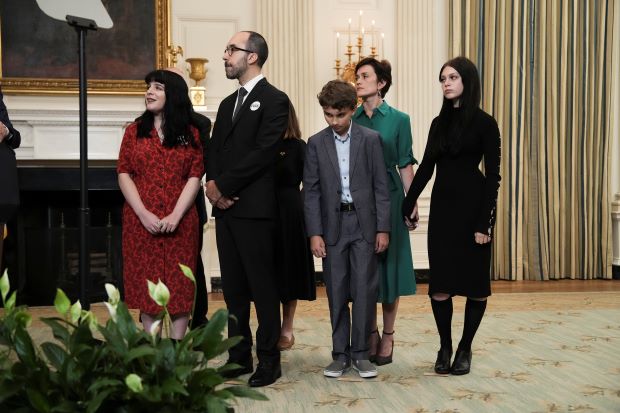Russia releases WSJ reporter, 15 others in sweeping prisoner swap

By Anton Troianovski and Mark Mazzetti
MOSCOW – A prisoner swap Thursday (Aug 1) involving seven countries freed Wall Street Journal (WSJ) reporter Evan Gershkovich and two other Americans held in Russia, along with several jailed Russian opposition figures, the White House said, in the most far-reaching exchange between Russia and the West in decades.
The scope of the deal has little precedent in the post-Soviet era. For the first time since the fall of the Soviet Union, Moscow freed prominent dissidents as part of a swap; 16 people in total were released from Russian custody. In exchange, eight people were freed by the West, after a complex web of negotiations that took place behind the scenes for months among nations that are otherwise bitterly at odds over Russian aggression in Ukraine.
The exchange took place at the international airport in Ankara, Turkey’s capital, and involved seven different planes ferrying 24 prisoners from the United States, Germany, Poland, Slovenia, Norway, and Russia, a Turkish intelligence official said.
The deal seemed sure to prompt jubilation among Western nations that had condemned the charges against the imprisoned Americans and opposition figures as baseless and politically motivated. It also delivered a diplomatic victory for President Joe Biden, who has long pledged to bring home imprisoned Americans and to support Russia’s embattled pro-democracy movement.
Biden said at a news conference that the prisoners had left Russia and were on their way home.
“Their brutal ordeal is over, and they’re free,” he said, surrounded by family members of the released prisoners.
It was also a triumph of a different sort for President Vladimir Putin of Russia, who can use the deal to highlight his loyalty to Russian agents who get arrested abroad. But the deal also carried risks at home for him, by releasing imprisoned politicians who could energize Russia’s moribund, exiled opposition.
Here’s what else to know:
— The deal freed Gershkovich, 32, who had spent 16 months in a Russian prison; Alsu Kurmasheva, 47, a Russian American editor for Radio Free Europe/Radio Liberty, who was also arrested last year; and Paul Whelan, 54, a former US Marine arrested in 2018.
— Prominent Russian political prisoners were also released. They included Ilya Yashin, 41, perhaps the most popular opposition politician who was still behind bars; Vladimir Kara-Murza, 42, a veteran activist who also writes for The Washington Post; and Oleg Orlov, 71, co-chair of Memorial, a Russian human rights group.
— Several of those freed by Russia were German nationals, including Rico Krieger, who had been sentenced to death for “terrorism” in Belarus, Russia’s closest ally. In exchange, Germany released Vadim Krasikov, a Russian convicted of murdering a Chechen former separatist fighter in Berlin in 2019 on orders of the Russian government. The United States released a convicted hacker, Vladislav Klyushin, and two others. Slovenia, Norway and Poland released four accused Russian spies.
— In 2022, the United States freed Viktor Bout, a convicted Russian arms trafficker, in exchange for Russia’s release of Brittney Griner, the basketball star arrested that year on drug charges.
— Some critics of deals like the one that freed Griner say they encourage further arrests of Americans by the Kremlin. But the newest deal was far broader than any trade that Biden or his recent predecessors had made with Putin. For the first time since the fall of the Soviet Union, Moscow freed prominent Russian opposition figures as part of the deal.
-New York Times


Comments are closed, but trackbacks and pingbacks are open.